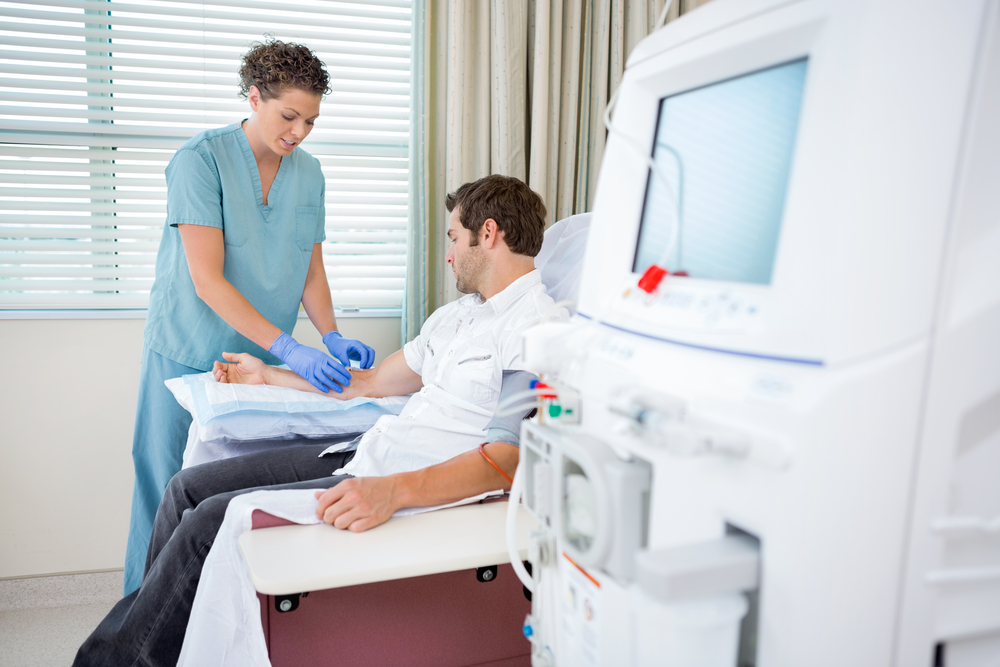Dialysis is the process of filtering blood by expelling waste products and excess liquids from your body. Usually the kidneys are the ones doing this function. This waste is sent to the bladder to be excreted when you urinate. In kidney failure, the kidneys are no longer are capable of performing these functions. End-stage kidney disease happens when the kidneys are performing at just 10 to 15 percent of their ordinary capacity and thus the sufferer needs dialysis.
Dialysis is a treatment that filters and clears out blood using a machine. This helps keep your liquids and electrolytes in balance when the kidneys can’t carry out their activity.


